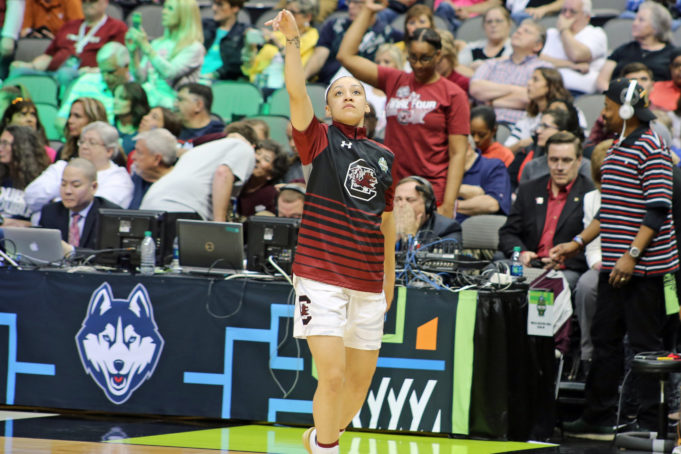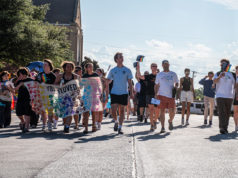One of the good things about sports is losing.
UConn women’s basketball coach Geno Auriemma lost this weekend. He might have forgotten how it felt, as it hadn’t happened in the Huskies’ previous 111 games.
“I understand losing, believe it or not. We haven’t lost in a while, but I understand it. I know how to appreciate when other people win.”
Grace in defeat is commendable. The coach also praised his opponent, suggesting Mississippi State “deserved to win. They beat us.”
Auriemma’s team was supposed to have lost already this season. The core of four straight title teams graduated and he built this squad around young players.
“I’m proud of what they’ve been able to do, how much they changed from last October, you know. When we started October 15th to where we are today, as I said, these kids were way older than they were supposed to be. They should have shown their age early on in the season.”
Helping young people mature as people and learn life lessons, including how to deal with setbacks, is part of what amateur athletics should be about.
“This is an education process,” said Mississippi State coach Vic Schaefer after his team, in turn, lost to South Carolina in the final. “I try to hold people accountable.”
South Carolina didn’t win everything this weekend. The school’s men’s team lost to Gonzaga in their semifinal. Afterward, head coach Frank Martin said his players “impacted our community in an unbelievable way, which is worth so much more than the score of a game. It’s what it’s all about. These kids are great role models. There’s a lot of young kids that want to be the next Sindarius Thornwell, Justin McKie, and I don’t get to coach them anymore, but they’re part of my life forever.”
The tough coach teared up as he spoke, clearly emotionally invested in the students he’d supervised. A shared sports experience can build powerful bonds that become lifelong relationships.
Also this weekend, I spoke with a friend who is a team doctor for one of the Women’s Final Four teams, and she told me about a student-athlete she had treated. The player at one time had wanted to be a surgeon, but had for various reasons abandoned that career path. My friend didn’t just repair her physical injury. She counseled the young woman and inspired her to revisit the goal, and the student is back on track for medical school. My friend enjoys fixing damaged knees and shoulders, but her level of job satisfaction peaks when she feels she has helped a young person advance in life.
As I spent much of my weekend absorbed in the Women’s Final Four in Dallas, and monitoring the men’s version on TV, I was reminded that the college athletic experience is about more than determining the best team on the court, rink, or field. It was a lesson I originally learned many years ago from my father, who spent his life as a professor, coach, administrator, and mentor to college students. While he’s one of the most competitive people I know, and aches to win at any contest, he always emphasized that the university athletic experience is, first and foremost, about positively affecting the student-athlete. It was a really good thing to see that college sports remains capable of achieving that goal.












